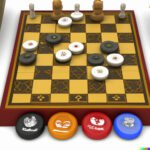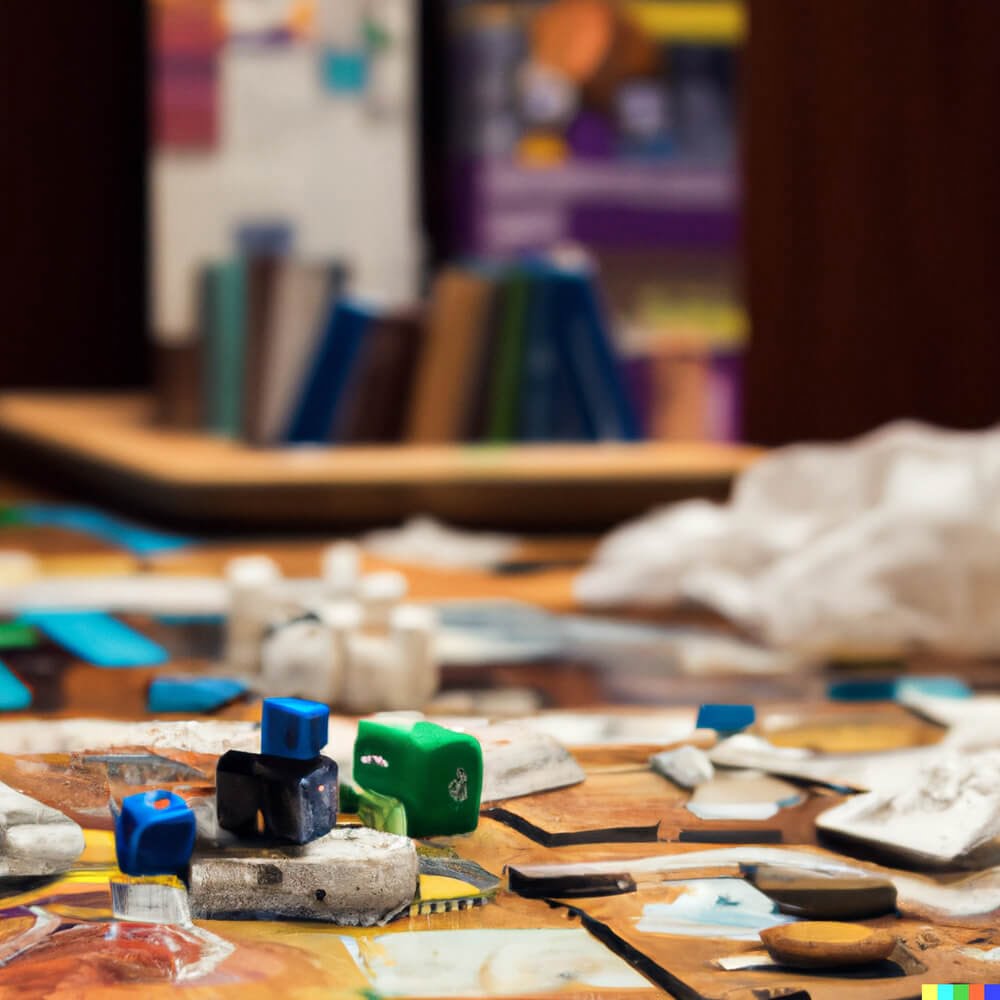Video game versions of classic board games have become increasingly popular in the gaming industry, offering players a digital twist on traditional favorites. The evolution of these timeless games into virtual adaptations has transformed the way people enjoy and interact with their favorite pastimes. From iconic titles like Monopoly and Scrabble to lesser-known gems, the transition from board game to video game has created new opportunities for players to immerse themselves in familiar gameplay experiences in a digital format.
As technology continues to advance, so does the way people engage with games. The rise of digital gaming has brought about a significant shift in how classic board games are played, making them more accessible than ever before. With the convenience of online platforms and mobile apps, players can now enjoy their favorite board games anytime, anywhere, often with the added bonus of new features and enhancements exclusive to the virtual versions.
With this shift towards digital adaptations, players have gained access to a whole new world of classic board games turned video games. This has opened up doors for developers to reimagine these beloved titles in innovative ways, appealing to both nostalgic fans and newcomers alike.
The transformation of traditional board game mechanics into interactive video game experiences has not only breathed new life into these classics but has also paved the way for creative reimaginings that push the boundaries of what these games can offer.
The Rise of Digital Gaming
Video game versions of classic board games have become increasingly popular as the gaming industry continues to evolve. With the rise of digital gaming, classic board games like Monopoly, Scrabble, and Clue have made their way into the digital space, offering players a new and exciting way to enjoy these timeless games.
The transition from classic board games to video game versions has been fueled by advancements in technology and the growing popularity of online gaming. Players are now able to access their favorite classic board games on various platforms such as mobile devices, gaming consoles, and computers. This accessibility has made it easier for people to play these games anytime and anywhere.
One of the key reasons for the success of video game versions of classic board games is the enhanced features and gameplay experience they offer. Digital adaptations often come with interactive elements, customizable settings, and multiplayer options, adding a new layer of excitement to these beloved classics. Additionally, video game versions allow players to connect with friends and family from different locations, making it a convenient and enjoyable way to socialize through gaming.
| Classic Board Game | Popular Video Game Version |
|---|---|
| Monopoly | Monopoly Plus |
| Scrabble | Scrabble GO |
| Clue | Clue: The Classic Mystery Game |
Popular Classic Board Games Turned Video Games
Monopoly
One of the most popular classic board games that have successfully made the transition into video game versions is Monopoly. With its iconic gameplay and timeless appeal, players can now enjoy digital adaptations of Monopoly on various gaming platforms. The video game versions offer immersive graphics, interactive features, and the convenience of playing with friends online.
Scrabble
Scrabble is another classic board game that has been transformed into a popular video game title. The digital versions of Scrabble provide players with the opportunity to challenge opponents from all over the world, engage in word-building competitions, and even improve their vocabulary skills with in-game dictionaries. The rise of Scrabble as a video game has introduced a new audience to this beloved word game.
Chess
Chess, known for its strategic gameplay and intellectual challenge, has also found its way into the digital gaming world. Video game versions of Chess offer not only traditional gameplay but also innovative features such as tutorials, puzzles, and online multiplayer modes. Players can now enjoy the ancient game of Chess in modern and dynamic environments, making it accessible to both beginners and seasoned enthusiasts.
The transition of these classic board games into video games has brought new life to these timeless titles. With enhanced graphics, interactive features, and global connectivity, players are able to experience these beloved games in a whole new way. As technology continues to advance, it is likely that more classic board games will make their mark in the world of video gaming, further expanding their reach and appeal among gamers.
Advantages of Video Game Versions
The transition of classic board games into video game versions has brought about several advantages that have captivated players and sparked a new wave of interest in these timeless games. One key advantage is the accessibility that video game versions offer.
With digital adaptations, players can now enjoy their favorite classic board games on various platforms such as PCs, gaming consoles, and mobile devices. This convenience allows for greater flexibility in gameplay and makes it easier for people to connect and play with friends and family, regardless of physical proximity.
Another advantage of video game versions of classic board games is the enhanced graphics and immersive gameplay experience they provide. Digital adaptations often come with visually stunning designs, animations, and sound effects that elevate the overall gaming experience. This modernized approach breathes new life into traditional board games, making them more engaging and appealing to both new and seasoned players.
Moreover, video game versions often include additional features such as online multiplayer modes, customizable settings, and tutorial guides that enhance the overall gameplay experience. These added elements provide players with a more dynamic and interactive gaming experience compared to traditional board games. With these advancements, it’s no wonder why players are drawn to the digital adaptations of classic board games.
| Advantages | Description |
|---|---|
| Accessibility | Video game versions offer accessibility across multiple platforms, allowing for easier gameplay with others. |
| Enhanced Graphics | Digital adaptations provide visually stunning designs and immersive audio-visual effects. |
| Additional Features | Online multiplayer modes, customizable settings, and tutorial guides add depth to the gaming experience. |
Challenges and Limitations
Quality of Gameplay
One of the main challenges of video game versions of classic board games is maintaining the quality of gameplay. While digital adaptation of these classic games may offer convenience and accessibility, some players argue that it can never truly replicate the tactile experience and social interaction that traditional board games provide. The absence of physical components such as game pieces, cards, and boards can sometimes detract from the overall experience for purist board game enthusiasts.
Technical Issues and Glitches
Another drawback when it comes to video game versions of classic board games are technical issues and glitches. Many players have reported encountering bugs or errors while playing digital adaptations, which can disrupt the flow of the game and lead to frustration. These technical issues can range from connectivity problems during online multiplayer sessions to game crashes and freezing. Additionally, not all video game versions are well-optimized for different platforms or devices, leading to compatibility issues.
Lack of Personal Interaction
A significant limitation in video game versions of classic board games is the lack of personal interaction among players. Traditional board games often facilitate face-to-face interactions, allowing players to read non-verbal cues and engage in friendly banter. In contrast, digital adaptations may limit communication to pre-set emotes or canned phrases. This reduced level of personal interaction can take away from the social aspect that many people enjoy when playing classic board games with friends and family.
Overall, despite the many advantages that video game versions bring to the table, there are certainly challenges and limitations that need to be addressed in order to fully capture the essence of classic board games in a digital format.
The Future of Video Game Versions
One trend in the industry is the integration of online multiplayer capabilities in video game versions of classic board games. Players can now connect with friends and family from around the world to enjoy a game of Monopoly or Scrabble, adding a social aspect to these digital adaptations. Additionally, cross-platform play is becoming increasingly popular, allowing players on different gaming systems to compete against each other seamlessly.
Another prediction for the future is the expansion of features and customizations in video game versions of classic board games. With advancements in technology, developers have the opportunity to enhance gameplay with interactive elements, unique visuals, and customizable options. This allows for a more personalized gaming experience and keeps players engaged with familiar classics in new and innovative ways.
As the demand for video game versions of classic board games continues to grow, it is expected that more collaborations between traditional board game companies and video game developers will emerge. This could result in high-quality adaptations that stay true to the essence of classic board games while incorporating modern gaming elements. Overall, the future looks bright for video game versions as they continue to evolve and become an integral part of the gaming industry.
Tips for Finding the Best Video Game Versions of Classic Board Games
When looking for the best video game versions of classic board games, there are several factors to consider to ensure an enjoyable gaming experience. One important aspect to look for is the faithfulness of the digital adaptation to the original board game.
A good video game version should capture the essence and gameplay of the classic board game, allowing players to experience the same fun and challenge in a digital format. It should also include all the key features, rules, and components that make the board game popular among players.
Another important factor to consider is the quality of graphics and user interface. The best video game versions of classic board games should have visually appealing designs, smooth animations, and easy-to-navigate menus. High-quality graphics can enhance the overall gaming experience and make it more engaging for players. Additionally, a user-friendly interface is essential for easy access to game settings, tutorials, and multiplayer options.
Furthermore, it’s crucial to look for video game versions that offer both single-player and multiplayer modes. While playing against AI opponents can be entertaining, having the option to play with friends or other online players adds a new level of excitement and competitiveness.
Multiplayer modes can also provide opportunities for social interaction and collaboration, making the gaming experience more dynamic and enjoyable. When choosing a video game version of a classic board game, it’s important to consider these factors in order to find the best digital adaptation that suits your preferences and offers a fulfilling gaming experience.
Overall, finding the best video game versions of classic board games requires careful consideration of key elements such as faithfulness to the original board game, quality of graphics and user interface, as well as available gameplay modes. By paying attention to these aspects, players can discover top-notch digital adaptations that capture the essence of their favorite classic board games while providing an engaging and immersive gaming experience.
Impact on the Gaming Community
In conclusion, the impact of video game versions of classic board games on the gaming community cannot be overstated. The transition from physical board games to digital adaptations has brought with it a new level of accessibility and convenience for players. The ability to play these classic games anytime, anywhere, and with anyone around the world has brought communities together like never before.
The incorporation of video game versions of classic board games into the gaming culture has also opened up opportunities for innovation and creativity. Developers have been able to breathe new life into old favorites through updated graphics, interactive features, and even new game modes. This has not only attracted new players to these timeless games but has also reignited the passion for them among long-time fans.
As we look towards the future, it is clear that video game versions of classic board games will continue to play a significant role in shaping the gaming industry. With advancements in technology and an ever-growing demand for digital entertainment, we can expect to see even more enhancements and adaptations of classic board games into video game format.
Whether it’s through virtual reality experiences or cross-platform compatibility, the potential for growth in this sector is vast. And as long as there are players craving nostalgic fun or a casual way to connect with friends, video game versions of classic board games will remain a beloved staple in the gaming community.
Frequently Asked Questions
What Are the Most Played Classic Board Games?
The most played classic board games include timeless favorites like Monopoly, Scrabble, Chess, and Checkers. These games have endured for decades and continue to be popular among both children and adults.
What Is a Legacy Game Board Game?
A legacy game board game is a type of game that evolves over multiple play sessions, with the choices and actions made by players in earlier games having a permanent impact on future games. This can include changes to the board, components, or rules as the game progresses.
What Is the Oldest Board Game That Still Exists?
The oldest board game that still exists is believed to be Senet, which originated in ancient Egypt around 3100 BC. This two-player game involved strategy and luck, and evidence of it has been found in Egyptian tombs from the predynastic and First Dynasty periods.

I love playing all kinds of games – from classics like Monopoly to modern favourites like Ticket to Ride.
I created this blog as a way to share my love of board games with others, and provide information on the latest releases and news in the industry.





